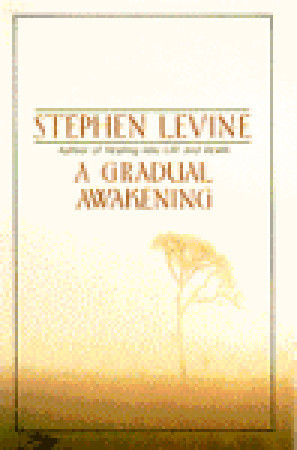
The Road Less Traveled: A New Psychology of Love, Traditional Values and Spiritual Growth
Book Description
Love, growth, and the courage to confront the darkness within—these are the uncharted territories explored in 'The Road Less Traveled.' M. Scott Peck unveils a profound journey where traditional values collide with modern challenges, inviting readers to embrace discomfort as the catalyst for personal transformation. Each page ignites a spark of introspection, revealing how love transcends mere emotion and becomes a powerful force for spiritual awakening. Through compelling insights and real-world applications, this groundbreaking work beckons the brave to traverse paths less traveled. Are you ready to discover what awaits on the other side of truth?
Quick Book Summary
In "The Road Less Traveled," psychiatrist M. Scott Peck challenges readers to pursue genuine spiritual and psychological growth by embracing discipline, confronting pain, and cultivating authentic love. Peck contends that personal growth is neither easy nor comfortable, requiring a willingness to face life’s difficulties head-on. With a blend of clinical case studies, philosophical insights, and spiritual reflection, he explores how discipline, delayed gratification, and openness to change are foundational to a fulfilling life. Peck emphasizes that love is an active process, not simply a feeling, and invites readers to grow beyond self-interest toward a deep commitment to personal and spiritual development. This enduring work encourages readers to choose the road of self-examination and transformation, despite its hardships.
Summary of Key Ideas
Table of Contents
Embracing Discipline and Responsibility
Peck opens his influential book by declaring that “Life is difficult.” He asserts that true growth begins with the acceptance of this reality. By embracing life’s inherent challenges, individuals can develop the mental discipline and responsibility necessary for happiness and maturity. Discipline—encompassing delayed gratification, acceptance of responsibility, dedication to truth, and balance—is presented as the fundamental tool for managing problems. Rather than avoiding pain and suffering, Peck advocates facing them head-on, as this process leads to genuine personal development.
Redefining Love as Action and Commitment
Redefining love, Peck diverges from common notions of romantic infatuation and transient emotional states. He argues that love is principally an act of will—deliberate actions that nurture spiritual growth in oneself and others. Love is sustained through ongoing commitment, thoughtful attention, and the risk of vulnerability. In Peck’s view, love inherently involves effort, discipline, and the occasional painful confrontation necessary for true growth. By understanding love as an active choice rather than a passive feeling, individuals can foster deeper connections and lasting relationships.
The Importance of Spiritual Growth
Central to Peck’s work is the idea that psychological well-being requires spiritual growth. He rejects the division between psychology and spirituality, insisting that true healing incorporates both. Peck explores the nature of faith, the practice of openness, and the courage to question preconceived beliefs. Through personal anecdotes and clinical examples, he illustrates how genuine spiritual development—regardless of religious background—abounds when one pursues truth, integrity, and conscious evolution. Spiritual growth becomes the ultimate purpose of life’s journey.
Confronting and Understanding Suffering
Peck delves deeply into the role of suffering and the ways people either confront or evade their pain. He uses real-life case studies to show that avoidance leads to stagnation, while facing struggles directly catalyzes transformation. The process of understanding and learning from suffering is depicted as an essential aspect of personal and spiritual maturity. By integrating discomfort, one gains wisdom and strength, moving toward greater self-awareness and compassion for others.
Integrating Traditional Values in Modern Life
Finally, Peck emphasizes the relevance of traditional values—like responsibility, discipline, and truthfulness—in navigating modern life’s complexities. He argues that many contemporary troubles stem from a neglect of these values. By reclaiming and integrating them into daily living, individuals can resist the allure of easy solutions and cultivate resilience, authenticity, and fulfillment. The road less traveled, while challenging and often lonely, offers a path toward self-actualization and deep, enduring transformation.
Download This Summary
Get a free PDF of this summary instantly — no email required.





